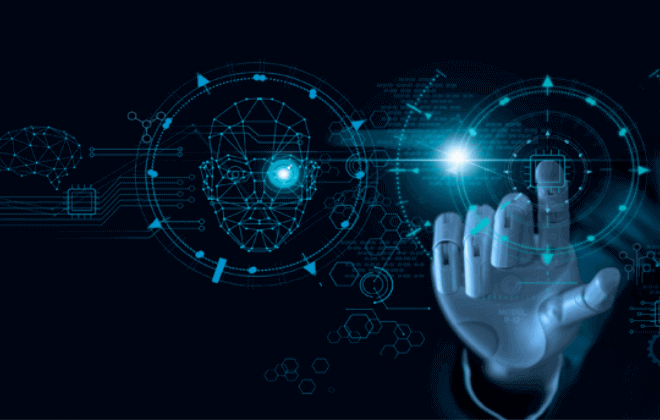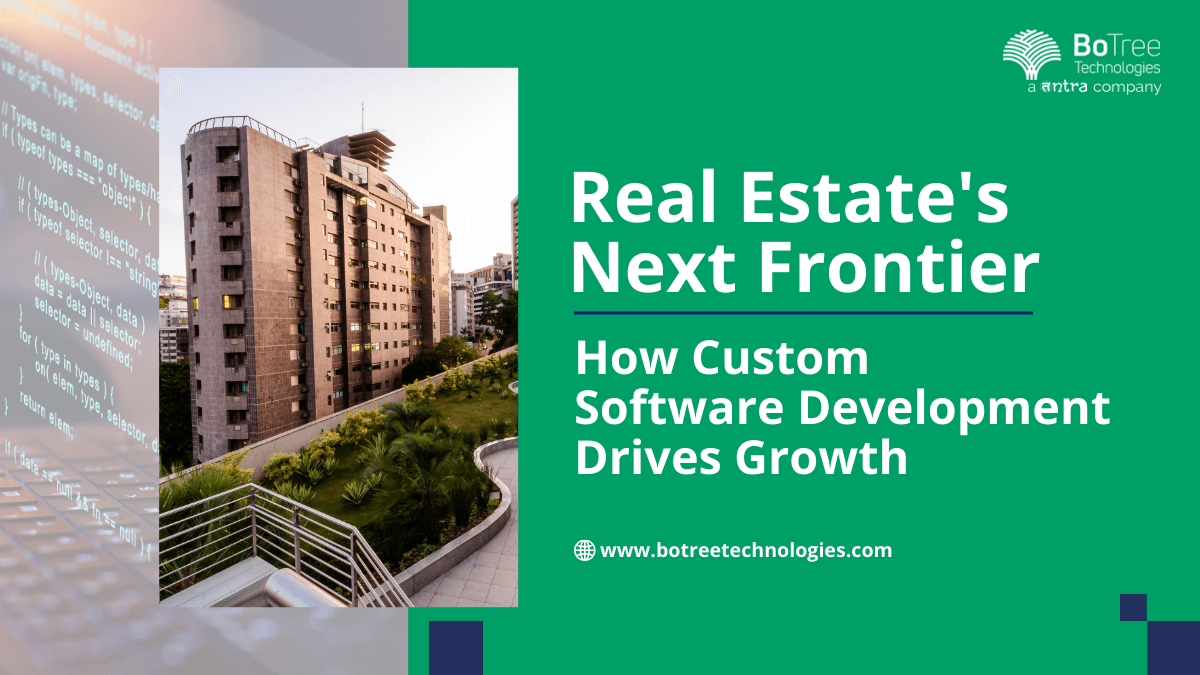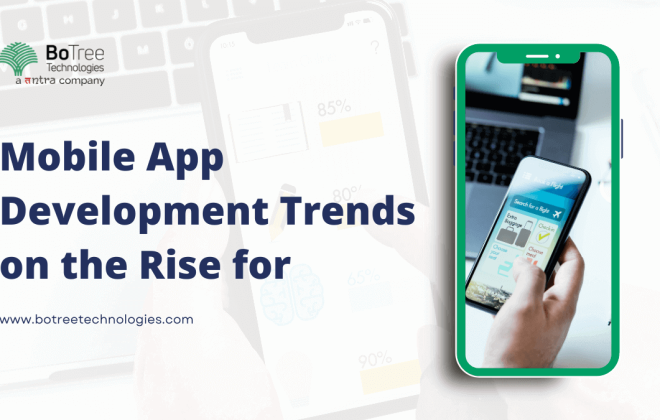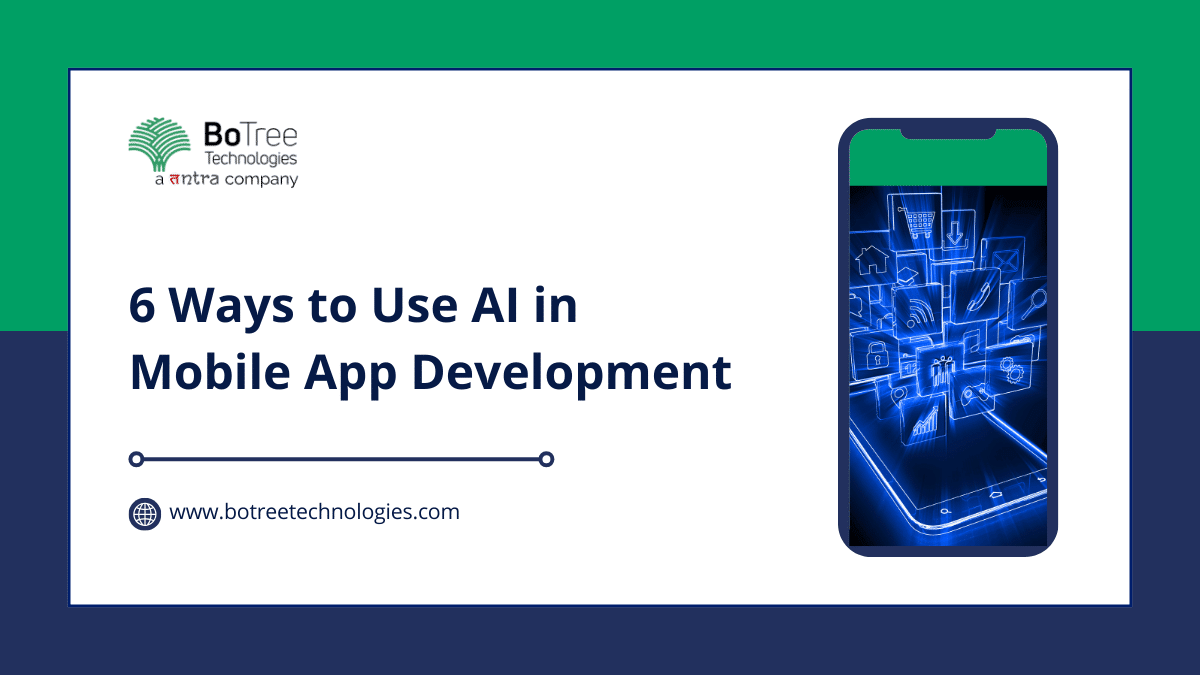
6 Ways to Use AI in Mobile App Development
Introduction
The Role of AI-based solutions in Transforming Mobile App Development Artificial Intelligence (AI) has emerged as a potent innovation accelerator in a technology landscape that is fast developing across many businesses. AI is redefining the process of creating mobile apps, improving user experiences, and empowering developers to produce more complex and practical solutions. This article covers six significant approaches to employing AI solutions
in mobile app development to change how customers engage with their smartphones and enhance the app ecosystem.
Personalized User Experiences
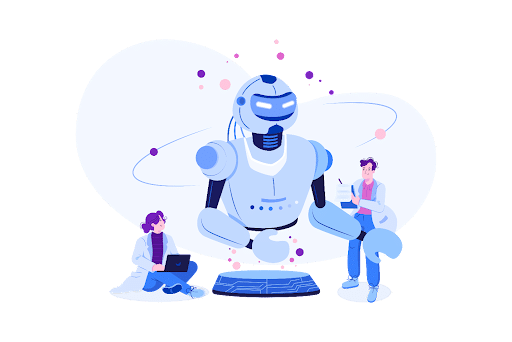
- Understanding AI-driven Personalization
- AI-driven personalization is redefining how mobile apps cater to individual user preferences. AI algorithms can deliver tailor-made content, recommendations, and suggestions by analyzing user behavior, preferences, and historical data. This level of personalization goes beyond the one-size-fits-all approach, providing users with experiences that resonate with their specific interests and needs.
- How AI Analyzes User Behavior
- AI’s ability to analyze user behavior is at the core of personalized experiences. AI algorithms can discern valuable insights by examining user interactions, app usage patterns, and preferences. This data-driven approach allows apps to predict what users want or need, enhancing engagement and user satisfaction.
- Benefits of Personalized Recommendations
- Personalized recommendations offer numerous benefits to both users and app developers. E-commerce apps, for instance, can leverage AI to suggest products based on previous purchases, browsing history, and demographic information.
- Case Study: E-commerce Apps and Personalization
- Take the example of an E-commerce app that utilizes AI-driven personalization. A user frequently searching for sports equipment might receive recommendations for related products, such as athletic wear and accessories. This level of customization creates a seamless shopping journey, making users more likely to engage with the app and make purchases.
Natural Language Processing (NLP)
- Exploring Natural Language Processing in Apps
- Natural Language Processing (NLP) helps a mobile app development company in empowering mobile apps to understand and respond to human language. This technology enables the integration of chatbots and virtual assistants that offer instant support and information. NLP-powered chatbots can handle customer queries, troubleshoot issues, and even facilitate transactions, providing users efficient and convenient interactions.
- Applications of NLP-powered Chatbots
- NLP-powered chatbots have become indispensable in modern app experiences. They assist users by quickly responding to queries, guiding them through app functionalities, and suggesting relevant content or actions. This natural and conversational interaction enhances user engagement and simplifies complex processes.
- Enhancing User Engagement with Conversational Interfaces
- Conversational interfaces powered by NLP bring a human touch to app interactions. Users can engage with apps using natural language, eliminating the need to navigate complex menus or interfaces. This simplicity and ease of use make apps more accessible to a broader audience.
- Extracting Insights from User Feedback through NLP
- NLP not only aids in user interactions but also in understanding user sentiment. By analyzing user reviews and feedback, apps can gain valuable insights into user satisfaction, pain points, and feature requests. This feedback-driven approach informs app improvements and ensures a user-centric development process.
Enhanced Security and Fraud Prevention
- The Importance of AI-driven Security Measures
- Security is crucial in a world that is becoming increasingly digital. AI contributes significantly to enhancing the security of mobile apps by detecting and preventing fraudulent activities. AI algorithms can analyze user patterns and behaviors to identify anomalies or suspicious actions, such as unauthorized access or fraudulent transactions.
- Detecting Suspicious Activities through AI Algorithms
- AI algorithms excel at identifying patterns that might go unnoticed by traditional security measures. For instance, if a user’s login location and time deviate drastically from their usual behavior, AI can trigger security protocols to prevent unauthorized access. This proactive approach by a software development company such as BoTree Technologies can help safeguards user data and privacy.
- Balancing User Privacy and App Security
- While enhancing security, it’s essential to maintain user privacy. AI-driven security measures can be designed to protect user information without compromising their data. Striking this balance is crucial in building trust and confidence among app users.
- Real-world Examples of AI-powered Security
- Numerous real-world examples demonstrate the efficacy of AI-powered security. Banking apps, for instance, employ AI algorithms to detect unusual spending patterns and flag potentially fraudulent transactions.
Predictive Analytics
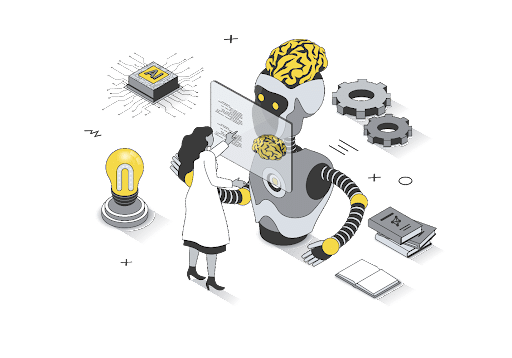
- Unveiling Predictive Analytics in Mobile Apps
- Predictive analytics powered by AI provide valuable insights to both developers and users. Mobile apps can harness predictive analytics to forecast user behavior, enabling developers to make informed decisions about app enhancements and updates. For instance, an e-commerce app can predict the next likely purchase of a user, facilitating timely promotions or recommendations.
- Leveraging User Behavior Patterns for Insights
- Predictive analytics rely on analyzing historical user data to anticipate future actions. By understanding user behavior patterns, apps can offer tailored experiences that align with user preferences, enhancing engagement and satisfaction.
- Customizing User Experiences through Predictive Analysis
- The predictive analysis enables apps to deliver content and recommendations in real-time. For instance, a travel app can predict a user’s preferred destinations based on past searches, presenting relevant deals and options.
- Boosting Revenue with Data-driven Predictions
- Predictive analytics can lead to increased revenue generation. By accurately anticipating user preferences, apps can offer products or services that align with users’ interests, leading to higher conversion rates and enhanced monetization opportunities.
Image and Speech Recognition
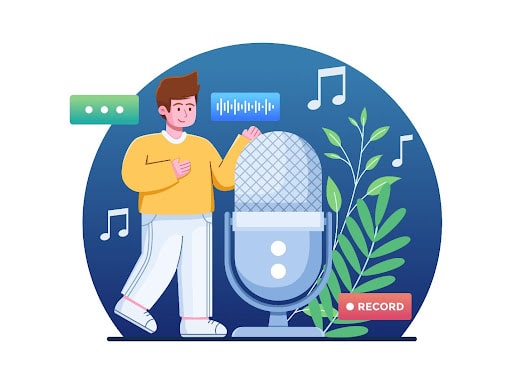
- AI’s Role in Visual Interpretation and AR
- Image recognition powered by AI is transforming how users interact with mobile apps. It enables apps to interpret visual data from the user’s environment, facilitating features like augmented reality (AR) filters, object recognition, and more.
- Applications of Image Recognition in Mobile Apps
- Image recognition has diverse applications, from retail apps enabling users to find products by taking photos to healthcare apps assisting in medical diagnoses through image analysis. This technology when used by enterprise software development services, opens up new avenues for innovative app functionalities.
- Enabling Voice Interaction with Speech Recognition
- Speech recognition is another dimension of AI that enriches mobile app interactions. Virtual assistants like Siri and Google Assistant utilize this technology, allowing users to perform tasks using voice commands. This hands-free interaction enhances user convenience.
- Voice Assistants and Beyond Voice-enabled Apps
- The rise of voice assistants is paving the way for voice-enabled apps across various domains. From dictating messages to controlling smart home devices, voice interactions offer a seamless and intuitive way for users to engage with their instruments and apps.
Automated Testing and Bug Detection
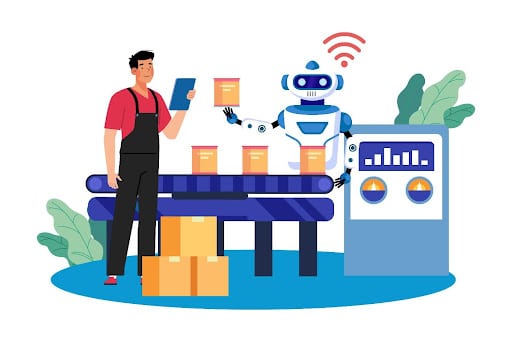
- Streamlining Testing with AI Automation
- AI-driven automated testing accelerates the app development cycle. AI-powered testing tools can replicate various scenarios, screen sizes, and operating conditions, ensuring comprehensive testing and bug detection.
- Identifying and Resolving Bugs Efficiently
- Automated testing used by mobile app development services like BoTree Technologies detects bugs and issues that might be overlooked in manual testing. This efficiency reduces the likelihood of app crashes or glitches, leading to a smoother user experience and higher app ratings.
- Shortening Development Cycles with Automated Testing
- The rapid identification and resolution of bugs lead to shorter development cycles. Developers can focus on addressing critical issues instead of spending excessive time on repetitive testing tasks, resulting in faster app releases.
- The Future of AI-driven App Quality Assurance
- As AI technology advances, automated testing will become more integral to app development. Developers can expect more sophisticated testing tools that enhance app quality and provide in-depth insights and analyses.
Conclusion
AI solutions are revolutionizing the landscape of mobile app development, offering a plethora of benefits for both users and mobile app development companies. AI is reshaping how apps are designed, tested, and optimized, from personalized user experiences and efficient customer support through NLP-powered chatbots to enhanced security and fraud prevention, predictive analytics, and image/speech recognition. As technology advances, mobile app development companies must embrace AI to stay competitive and provide cutting-edge, user-centric solutions that meet the evolving demands of the digital age. The future of mobile app development undoubtedly lies in the hands of AI-driven innovation.
BoTree Technologies is a leading mobile app development company, and we are ready to help you with your next custom mobile application.
Contact the experts at BoTree Technologies (a Tntra company) today.
